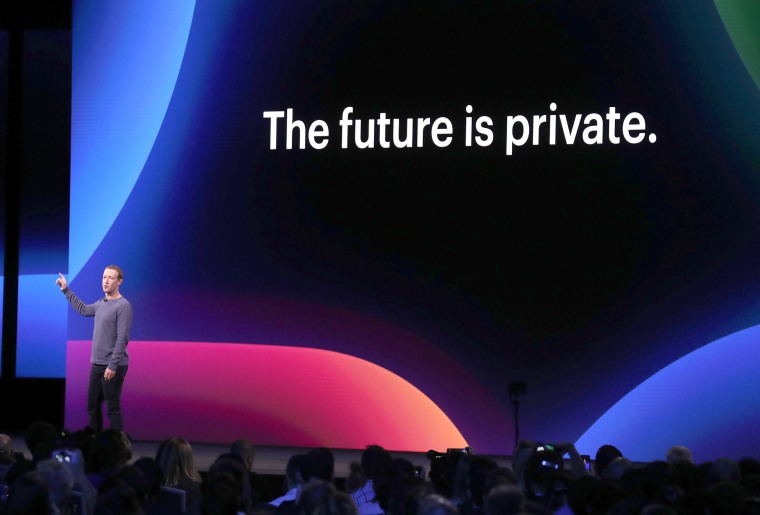A lawyer for Facebook argued on Wednesday that its users had no expectation of privacy when using the social network, pushing for a judge to throw out a class-action lawsuit related to the Cambridge Analytica scandal.
“There is no invasion of privacy at all, because there is no privacy,” on Facebook or any other social media site, company attorney Orin Snyder told U.S. District Judge Vince Chhabria.
That may come as a surprise to those who have followed CEO Mark Zuckerberg’s pivot to privacy in recent months. He even wrote a manifesto for a “privacy-focused vision” of social media in March, saying he believes the future of communication lies in private, encrypted services.
But his lawyer’s line of reasoning in court echoes what the company and Zuckerberg previously said both publicly and privately in past years — and explains how the company built an online advertising business that is now rivaled only by Google.
And while some changes to Facebook, such as a broad embrace of encrypted messaging, have been welcomed by privacy advocates, others remain concerned that Zuckerberg’s “privacy-focused vision” leaves the company’s core business of data-targeted ads mostly unscathed.
Internal company emails from 2011 to 2015, leaked as part of a lawsuit by a photo app developer against Facebook and previously the subject of a report by NBC News, underscore the wide variety of ways the company initially considered monetizing its users’ data — with privacy concerns rarely mentioned. Central to those discussions were the kinds of developers that would eventually land Facebook in the middle of the Cambridge Analytica scandal, in which an app that connected to Facebook was able to harvest the information of millions of people.
Some of Facebook’s early ideas to make money off its data centered on these kinds of apps, with Zuckerberg even offering up a guess at how much a single person might be worth to outside developers.
“~$0.10/ user each year,” he wrote in 2012. Which “might even be too low,” he added.
A Facebook spokesperson responded to a request for comment by sharing a link to a Facebook post where Zuckerberg wrote, “We’ve never sold anyone’s data.” The spokesperson also referred to the company’s previous statements calling the leaked emails “cherrypicked” as part of a lawsuit.
“The developer platform is free for developers to use,” the statement read. “We explored multiple ways to build a sustainable business… we ultimately settled on a model where developers did not need to purchase advertising to access APIs.”
The emails offer a rare, inside look at how Zuckerberg and top Facebook executives thought about how to create a profitable business off user data.
Among them, Zuckerberg floated the idea of turning Facebook into a kind of “information bank” in which developers would rack up a debt to Facebook based on how much user data they accessed, which would be paid off by buying ads.
He also suggested inventing a mandate that developers “must keep data fresh and update their data each month.” Every time they “refreshed” their data, Facebook could charge them for how much data they accessed.
Even the degree of closeness between different users had potential currency for marketers, according to an email. Internally, Facebook termed this metric the “coefficient.”
Antonio García Martínez, director of Facebook's Ad Exchange from 2011 to 2013, said the emails reflect the company’s efforts to consider a variety of ideas in building its business.
He added that the emails may look shocking to outsiders but have to be considered in context.
“A call went out to ‘give us all your crazy ideas,’” he said. “The company was stumbling around in the dark trying to launch and monetize the product at the same time.”
“This is every conversation every data driven company has,” he added.
The plans to charge developers were eventually scrapped in favor of something more profitable: selling highly targeted mobile ads derived from that user data as well as data collected from a variety of other tools.
Ashkan Soltani, a former chief technologist for the Federal Trade Commission, the U.S. government’s business watchdog that is expected to levy a multi-billion-dollar fine fine against Facebook, said the emails reflected the company’s mindset when figuring out its business model.
“There is not a lot of consideration to the ethics of consumer data,” Soltani said. “The company is exploring to create value, or the illusion of value, by providing access to user data.”

